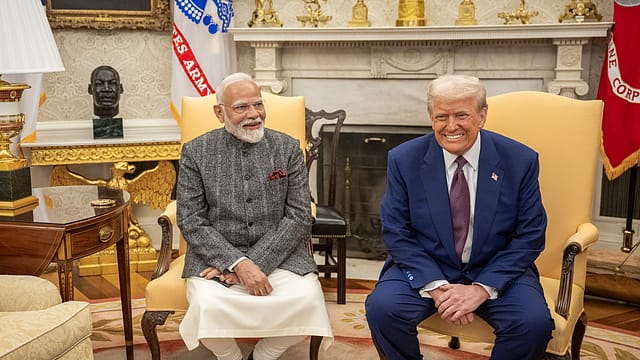India is better off than competition in facing Trump tariffs, says PwC
ADVERTISEMENT

The tariff announcements made by U.S. President Donald Trump could provide a competitive advantage or have no impact on Indian exporters in most key products except chemicals and marine products, says global consultancy PricewaterhouseCoopers Pvt Ltd (PwC). In the case of chemicals, India, with 26% tariff will have to compete with its top competitor Germany, which will pay only 10% tariff, once the new directive comes into force from April 9. Similarly, for marine product exports, the 26% tariff levied on Indian exports will make it more expensive in the U.S. than marine products coming from Chile with a 10% tariff.
The PwC analysis shows that despite the 26% tariff on precious or semi-precious stones exported from India, it will be still competitive than the same products coming from its top competitor Switzerland because of the 31% tariff that the U.S. has slapped on exports from that country. Electrical machinery and equipment from India will have 26% tariff while those from China will pay 54% tariff, making Indian exports competitive against its top competitor in this category.
The other products in which India has a competitive advantage in terms of relatively lower tariffs than the top competitor are textiles or apparels and machinery and mechanical appliances (in both cases, it's India’s 26% tariff vis-à-vis China’s 54%).
The exports of pharmaceuticals and petroleum products will not have any impact as both are on the exempted list with no additional tariffs announced by Trump at the moment. In the case of categories like vehicles and parts and accessories and articles of iron or steel also, the latest announcement, which came on April 2, did not have any surprises in terms of extra tariffs, other than the 25% tariff slated to be levied on all imports irrespective of the country of origin.
According to PwC experts, the industry should utilise the ongoing Bilateral Trade Agreement talks between India and the U.S to reduce the impact of higher tariffs. The consultancy also wanted businesses to assess cost implications and opportunities, and to adjust product focus, pricing, and sourcing strategies so as to manage tariff impacts effectively.